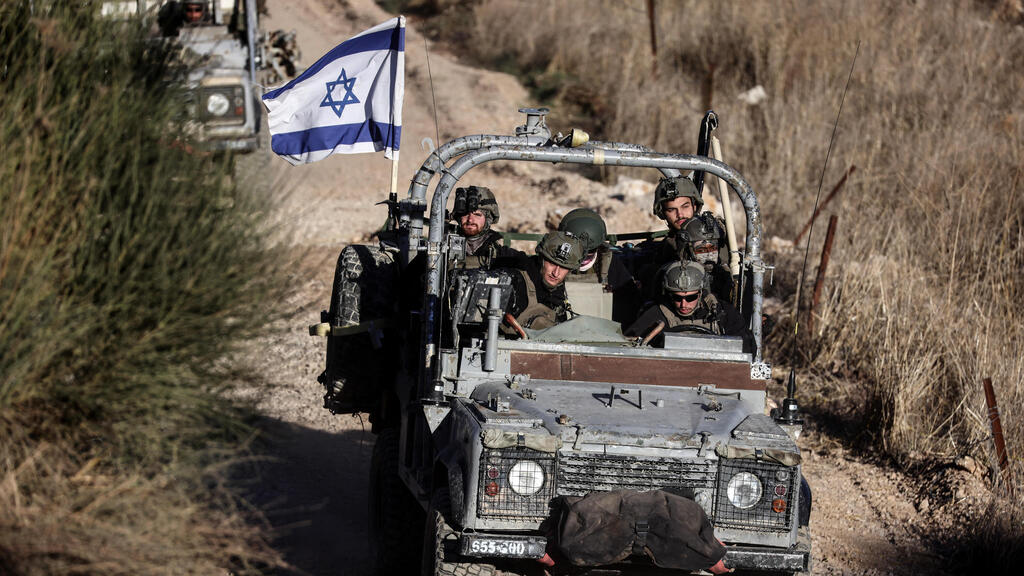Getting your Trinity Audio player ready...
Senior officials in Israel said on Thursday that the country would need to maintain a 15 km (9.3 mi) operational perimeter within Syrian territory, where the IDF would maintain a presence to ensure that allies of the new regime couldn’t launch missiles toward the Golan Heights.
They also noted the necessity of a "sphere of influence" extending 60 km (37 mi) into Syria, under Israeli intelligence control, to monitor and prevent potential threats from developing.
3 View gallery


Prime Minister Benjamin Netanyahu, Ahman al-Sharaa
(Photos: Abdulaziz Ketaz / AFP, Yariv Katz, Matias Delacroix/AP)
Israeli officials were reportedly astounded by what they described as the West's "blindness" toward the regime of Ahmad al-Sharaa, (formerly known as Abu Mohammed al-Golani), the new leader of the jihadist rebels.
Al-Sharaa, who was formerly associated with al-Qaida, had since distanced himself from the terrorist organization and claimed to have moderated his stance. "The U.S., UK and Germany are flocking to the butcher al-Sharaa," an Israeli official said.
These remarks came as senior Western representatives traveled to Damascus, hoping that al-Sharaa’s claims of moderation and plans for a governance structure respecting human rights would materialize.
There was even speculation that Syria under his leadership might eventually move toward democracy, though al-Sharaa himself said that elections were unlikely for the foreseeable future. The U.S. had already removed a $10 million bounty placed on his head a decade earlier and recently eased some sanctions on Syria.
A senior Israeli official alleged that the West was deliberately "choosing to be blind," dealing with "some of the most dangerous people in the world " – former al-Qaida members. "It’s incredible how the world has fallen into this trap again.
“The Arab world surrounding us understands the threat and is warning the West but they refuse to listen. While [Bashar] Assad’s fall and the weakening of Iran’s axis in Syria are undoubtedly positive developments, new threats are emerging."
The official added that, while the Syrian rebels had sent messages to Israel claiming they weren’t seeking conflict, he remained skeptical. "This might hold true for a year, two years, maybe even 10 or 20.
“But no one can guarantee that eventually, they won’t turn against us – and these are highly dangerous people. Al-Sharaa’s current goal is to lift sanctions on Syria to bring in foreign funds. But in the long run, Israel must maintain a control zone and a sphere of influence in Syria."
Get the Ynetnews app on your smartphone: Google Play: https://bit.ly/4eJ37pE | Apple App Store: https://bit.ly/3ZL7iNv
He also expressed hope that Israel would receive full backing against threats from Syria and Lebanon after the inauguration of U.S. President-elect Donald Trump on January 20. "In the meantime, we’ll have to remain there, ensuring a 15-km missile-free zone under our control, as well as a 60-km sphere of influence, to prevent threats from developing. We’re building an operational concept for this new reality."
Israel was also concerned about the potential entrenchment of Hamas and Islamic Jihad in Syria, seemingly ignored by al-Sharaa. "We won’t allow their establishment in Syria just as we prevented Iran’s foothold there," the official said. "We estimate that al-Sharaa prefers to keep them there so they can act against Israel, giving him plausible deniability."





